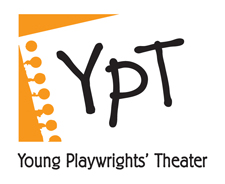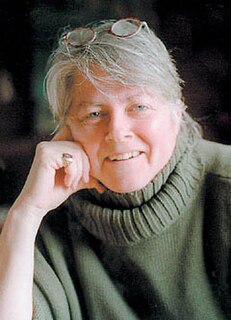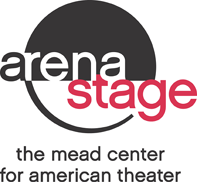
In education, a curriculum is broadly defined as the totality of student experiences that occur in the educational process. The term often refers specifically to a planned sequence of instruction, or to a view of the student's experiences in terms of the educator's or school's instructional goals. In a 2003 study, Reys, Reys, Lapan, Holliday, and Wasman refer to curriculum as a set of learning goals articulated across grades that outline the intended mathematics content and process goals at particular points in time throughout the K–12 school program. Curriculum may incorporate the planned interaction of pupils with instructional content, materials, resources, and processes for evaluating the attainment of educational objectives. Curriculum is split into several categories: the explicit, the implicit, the excluded, and the extracurricular.
VSA, is an international organization on arts, education and disability, which was founded in 1974 by former U.S. Ambassador to Ireland Jean Kennedy Smith, and is headquartered in Washington, DC. In 2011, VSA became the Department of VSA and Accessibility at the John F. Kennedy Center for the Performing Arts. The purpose of VSA – which started out as Very Special Arts – is "to provide people of all ages living with disabilities the opportunity to learn through, participate in and enjoy the arts." A primary focus is on arts education opportunities for young people with disabilities and to "promote the inclusion of people with disabilities in the arts, education and culture around the world." Each year, people of all ages and abilities participate in VSA programs, which cover all artistic genres—music, dance, visual arts, theater and literary arts. This is accomplished through a network of affiliates in 52 countries and VSA state organizations across America.
A teacher-librarian (TL), school librarian, or school library media specialist (SLMS), is a certified librarian who also has training in teaching. According to the American Association of School Librarians (AASL), a division of the American Library Association (ALA), the official title for a certified librarian who works in a school in the United States is school librarian.

Visual arts education is the area of learning that is based upon only the kind of art that one can see, visual arts—drawing, painting, sculpture, printmaking, and design in jewelry, pottery, weaving, fabrics, etc. and design applied to more practical fields such as commercial graphics and home furnishings. Contemporary topics include photography, video, film, design, and computer art. Art education may focus on students creating art, on learning to criticize or appreciate art, or some combination of the two.
The President's Committee on the Arts and the Humanities (PCAH) was an advisory committee to the White House on cultural issues. It worked directly with the Administration and the three primary cultural agencies: the National Endowment for the Arts, National Endowment for the Humanities, and the Institute of Museum and Library Services, as well as other federal partners and the private sector, to address policy questions in the arts and humanities, to initiate and support public/private partnerships in those disciplines, and to recognize excellence in the field. Its core areas of focus were arts and humanities education, cultural exchange, and the creative economy.
The China Institute in America is a nonprofit educational and cultural institution in New York City that was founded in 1926.
Integrative learning is a learning theory describing a movement toward integrated lessons helping students make connections across curricula. This higher education concept is distinct from the elementary and high school "integrated curriculum" movement.
Lakeville Elementary School is an American elementary school that was named a 2009 Blue Ribbon School of Excellence, the US Department of Education's highest award. It is located in The Village of Lake Success, serving students in grades 1 through 5 as well as kindergarten. Kindergarten and Pre-Kindergarten classes are taught at Parkville School, which is located in the nearby town of New Hyde Park.
Arts integration is an approach to teaching that integrates the fine and performing arts as primary pathways to learning. Arts integration differs from traditional education by its inclusion of both the arts discipline and a traditional subject as part of learning The goal of arts integration is to increase knowledge of a general subject area while concurrently fostering a greater understanding and appreciation of the fine and performing arts. The John F. Kennedy Center for the Performing Arts defines arts integration as "an approach to teaching in which students construct and demonstrate understanding through an art form. Students engage in a creative process which connects an art form and another subject and meets evolving objectives."
A business–education partnership is involvement between schools and business-industry, unions, governments and community organizations. These partnerships are established by agreement between two or more parties to establish goals, and to construct a plan of action for achievement of those goals.
Youth in Arts is a non-profit organization that provides visual and performing arts instruction to public and private school students and enriches the community with cultural events. Youth in Arts has been providing arts education to students in the San Francisco Bay Area since 1970. It is based in San Rafael, Ca. The Artists in Schools program brings artists into classrooms to teach visual and performing arts in extended residencies or shorter workshop programs and also provides training for teachers and parents in supporting students' learning and development through the arts.
The Center for Arts Education (CAE) is a nonprofit organization in New York City, New York, in the United States. It promotes arts education in the public schools and between 1996 and 2008 spent nearly $40 million. It claimed to have affected over 500 schools, 490,000 students, 21,000 teachers and 75,000 parents and to have supported more than 400 cultural organizations.

University of the Middle East Project (UME) is an independent non-governmental organization whose people-to-people exchange programs bring together secondary school educators from across the Middle East and North Africa (MENA) and the United States with the aim of enhancing pedagogical skills and encouraging cross-cultural dialogue and understanding. In the United States, UME is a 501(c)(3) not-for-profit organization, registered as The Center for Higher Education in the Middle East, Inc.

Young Playwrights' Theater (YPT) is a not-for-profit theater arts-based education organization in Northwest Washington, D.C.. It provides interactive in-school and after-school programs presenting and discussing student-written work to promote community dialogue and respect for young artists.
Boston Schoolyard Initiative (BSI) is a public private partnership that works to transform the conditions of public schoolyards of Boston Public Schools. BSI, in collaboration with private funders, the City of Boston and Boston Public Schools, uses a community participatory design process to change neglected and unwelcome schoolyards into centers for active school and community use.

One World Youth Project (OWYP) is a non-profit 501(c)(3) corporation founded in Massachusetts and currently based in Washington DC. The goal of One World Youth Project is to enhance education towards a more discerning, empathetic and empowered generation of global citizens. In 2009, One World Youth Project launched the One World Hub program, a service-learning program that trains university students to lead a global education curriculum in local middle/high schools, and to connect these secondary school classrooms with partner classrooms in other countries. The One World Youth Project global education curriculum includes the following units: cultural exchange, understanding of global challenges, community mapping, and service-learning.
The Tribeca Film Institute (TFI) is a year-round non-profit arts organization founded by Robert De Niro, Jane Rosenthal, and Craig Hatkoff in the wake of September 11, 2001. TFI's mission is to empower filmmakers through grants and professional development, and train the media-makers of the future by bringing film into the classroom, developing young audiences for independent film, and promoting career development.

Teaching for Change is a non-profit organization founded in 1989 and based in Washington D.C. with the motto of "building social justice, starting in the classroom." This organization uses publications, professional development, and parent organizing programs to accomplish this goal.

Peggy O'Brien Ph.D. is the founding director of education at the Folger Shakespeare Library and an internationally recognized authority in the teaching of Shakespeare and literature. She speaks and writes on teaching and learning with respect to Shakespeare and the humanities, and to K-12 classrooms. She is a director of SAGE Publications, board chair of St. Coletta School in Washington, D.C. and past board chair at Trinity Washington University. She founded and directs the Folger Library's Teaching Shakespeare Institute, its Summer Academy for teachers and a number of other programs. She is general editor of the Shakespeare Set Free series of books on the teaching of Shakespeare. O'Brien is a resident consulting teacher at the Brooklyn Academy of Music and launched and published Shakespeare Magazine. O'Brien has worked in the service of education since 1969. She has taught English in District of Columbia public high schools, held the senior education positions in both public broadcasting and the cable industry's education foundation, and served on the leadership team of DC Public Schools. She teaches at Georgetown University and Trinity Washington University.

Kenjgewin Teg Educational Institute (KTEI) is an Aboriginal-owned and controlled post-secondary institution at M'Chigeeng First Nation, on Mnidoo Mnising Manitoulin Island, Ontario, Canada. In the Ojibwe language, Kenjgewin Teg means a place of knowledge. KTEI provides educational initiatives to its member population of 6,800+ people and to students in the surrounding area. Programs are offered to its eight-member First Nations:









